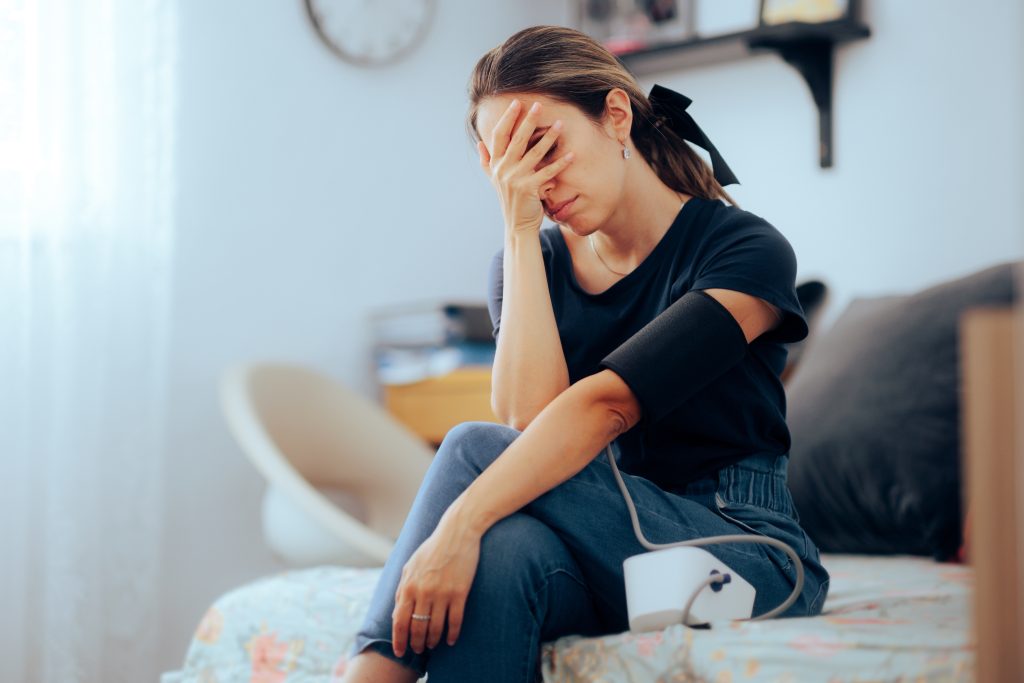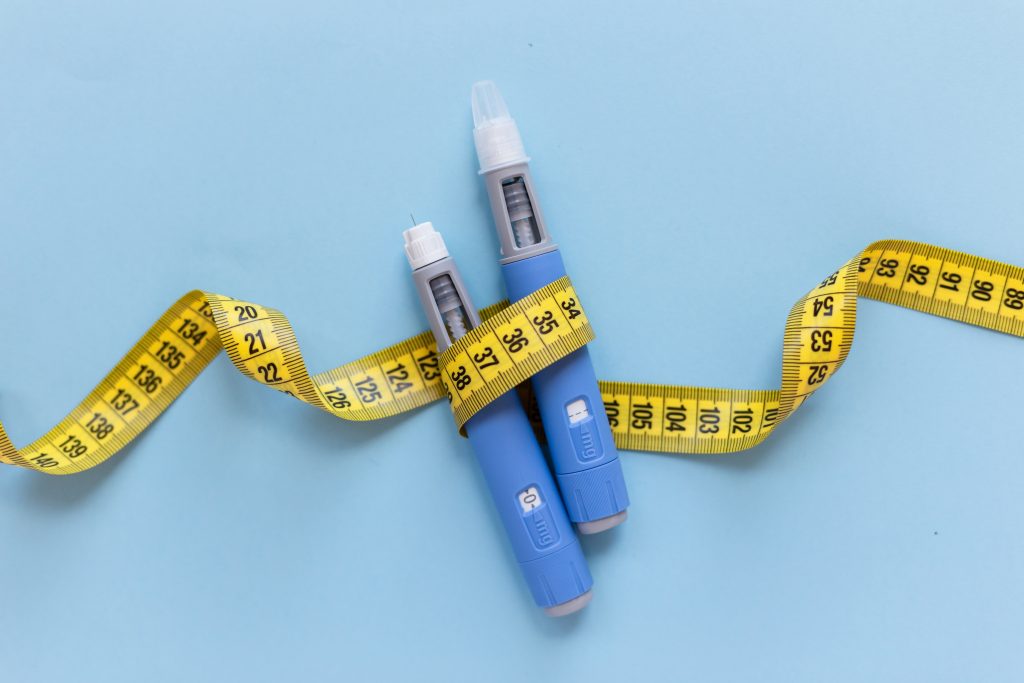Blockbuster diet drugs are dominating headlines, but are they safe? With more people turning to medicated slimming, pharmacists play a key role in guiding safe and sustainable weight loss
Recently, weight-loss drugs like Ozempic have become a hot topic in Hollywood, sparking debates about their safety and the growing trend of medicated slimming.
Reports suggest that celebrities are allegedly micro-dosing the drug to shed weight just in time for a big night in cinema, reinforcing the idea that rapid weight loss through medication is the ideal route. As these discussions openly normalise such practices, the ripple effect extends far beyond the entertainment industry—shaping public perception and downplaying the potential risks. While approved slimming drugs can be an option, their safety and effectiveness depend on proper guidance, something that often gets lost in the hype.
Pharmacists, often seen as mere dispensers of medicine, actually play a crucial role in helping individuals navigate weight management safely. Associate Professor Dr. Ernieda, a lecturer at UKM with a keen interest in patient care, highlights the importance of pharmacists in preventive health. Having personally lost 14 kilograms post-COVID-19 through extensive research and safe practices, she understands both the medical and lived experience of weight loss. In this interview, she enlightens us about the risks of highly accessible slimming drugs, the importance of professional guidance, and why sustainable weight loss requires more than just an instant fix—it requires knowledge, long-term support and behavioural changes.

1Twenty80: What are the main approaches to weight loss, and how do they work?
Dr. Ernieda: Weight loss methods revolve around three main concepts:
- Water Loss
Sometimes, people lose weight simply by reducing excess water. For example, drinking three cups of coffee (which may cause a laxative effect in some people) can lead to water loss. When you step on the weighing scale, it may seem drastic, like losing 5-10 kg, but it’s just water weight. - Calorie Deficit
This is key to weight loss. To lose fat, you need to be in a calorie deficit (consuming fewer calories than your body burns). Without that, fat loss won’t happen. This can be achieved through controlled food intake or medications that suppress appetite, which naturally reduces calorie consumption. - Increasing Metabolism
Some weight loss methods focus on boosting metabolism, helping the body burn more calories efficiently.
All weight loss strategies are built around these three concepts. Intermittent fasting, dietary changes, and exercise all tackle at least one, sometimes a combination. Some approaches focus on just one method, while others combine two or all three for better results.
1Twenty80: How do slimming drugs work? Do they actually burn fat, suppress appetite, or boost metabolism?
Dr. Ernieda: First of all, medication is not the first-line approach for weight loss. According to Malaysia’s obesity management guidelines, weight loss should first be attempted through non-pharmacological methods before considering medication.
First-line Treatment: Non-Pharmacological Weight Loss
Before using medication, weight loss should focus on natural methods that create a calorie deficit:
- Prescribed diet – A structured eating plan with specific calorie intake.
- Intermittent fasting – Fasting for set hours, with controlled calorie intake during eating periods.
- Meal replacements – Substituting meals with lower-calorie alternatives.
- Exercise – While not directly creating a calorie deficit, exercise helps burn calories and contributes to overall weight loss.
Most effective weight loss strategies involve a combination of these methods rather than relying on just one. Generally, diet contributes 80% to weight loss, while exercise accounts for about 20%.
Second-line Treatment: Pharmacotherapy (e.g. slimming drugs)
Pharmacotherapy is recommended when lifestyle changes aren’t enough, especially for those with diabetes or hypertension who need to lose weight quickly. These medications primarily suppress appetite rather than directly burning fat or boosting metabolism.
- Slimming drugs act on the brain to reduce hunger and cravings, making it easier to eat less.
- By consuming fewer calories than the body needs, the body starts burning stored fat for energy.
- For example, if your body requires 1,800–2,000 calories daily but you only consume 1,400 calories, the body compensates for the 400–600 calorie deficit by burning fat stores—leading to weight loss.
If medication doesn’t work, bariatric surgery may be considered, but only for cases where weight loss is critical for health. Ultimately, whether through diet, exercise, or medication, calorie deficit remains the key to losing weight. Without it, fat loss won’t happen.

1Twenty80: There’s been a rise in the off-label use of Ozempic for weight loss, what are the risks of using it for slimming?
Dr. Ernieda: Ozempic works by suppressing appetite and delaying gastric emptying. This means food stays in the stomach longer, slowing down calorie and glucose absorption. As a result, people consume fewer calories, which can contribute to weight loss.
However, Ozempic is not a weight loss drug. It is registered in Malaysia as a treatment for diabetes. While it can cause weight reduction in diabetic patients, its primary purpose is to manage blood sugar levels, improve insulin sensitivity, and reduce fat storage associated with diabetes.
Ozempic vs. Wegovy
The same company also produces Wegovy, which is registered in Malaysia for weight loss. Both Ozempic and Wegovy contain the same active ingredient, semaglutide, but they are prescribed for different purposes:
- Ozempic – Approved for diabetes treatment.
The dosage is tailored for blood sugar control rather than weight loss. - Wegovy – Specifically formulated for weight management.
Has a higher maximum dose designed to achieve weight loss over a structured period (typically 16 weeks).
Since Ozempic is not approved for weight loss in Malaysia, using it for this purpose is considered off-label use. If weight loss treatment is needed, Wegovy is the proper alternative as it is officially registered for this indication.
1Twenty80: Do you think slimming drugs are too easily accessible—perhaps in a dangerous way?
Dr. Ernieda: Yes, I do think so. The issue is that Ozempic seems to be widely accessible, even though it is a prescription-only medication. It should only be used under a doctor’s supervision, yet somehow, people are managing to buy it online or from unofficial sources. That’s concerning because all medications come with risks, and without proper medical guidance, those risks could outweigh the benefits.
For instance, Ozempic and Wegovy are not suitable for everyone. Certain conditions make their use unsafe, such as:
- Pregnancy or plans to conceive – These drugs are contraindicated in pregnancy, but if someone self-medicates without consulting a doctor, they may not realise the risks.
- Medullary thyroid carcinoma (a type of thyroid cancer) – Without proper screening, a person might not even know they have this condition and could unknowingly be taking a drug that is dangerous for them.
The Importance of Medical Supervision
The drugs also come with potential side effects, including:
- Gastrointestinal issues – Diarrhoea, constipation, bloating, dyspepsia (indigestion)
- Mental health concerns – Some users experience depression or even suicidal thoughts
- Other side effects – Headaches, fatigue, and nausea
Because of these risks, medical supervision is crucial. The dose must be carefully adjusted—starting at 0.25 mg once weekly and gradually increasing to 2.4 mg for Wegovy. This step-by-step approach allows doctors to monitor for side effects and adjust the treatment accordingly.

1Twenty80: There are many reports of weight rebound after stopping weight loss medication. Why does this happen?
Dr. Ernieda: Weight loss isn’t permanent if users don’t adopt long-term lifestyle changes. Some people lose up to 10kg on medication, but once they stop, the weight returns because they haven’t developed sustainable eating habits.
Once medication is discontinued, appetite returns to normal. Without ongoing healthy eating and exercise, weight gain is likely. This applies to any method—whether diet, medication, or bariatric surgery—long-term success depends on maintaining balanced eating habits. Many assume dieting means simply eating less, but it’s really about eating right—reducing calories while still meeting nutritional needs to support metabolism. Portion control and proper nutrition are key to sustaining weight loss.
Older weight loss drugs, like sibutramine, increased metabolism but were discontinued due to safety concerns. Newer medications, such as Wegovy, are prescribed for individuals with a BMI over 30 or over 27 with conditions like prediabetes or hypertension. These drugs not only aid weight loss but also help manage related health risks.
That’s why consulting a doctor before taking weight loss medication is essential. Even when prescribed, patients receive dietary and lifestyle guidance to ensure sustainable habits. While medications like Wegovy and Ozempic can support weight loss, long-term success ultimately depends on balanced eating and regular physical activity.
1Twenty80: Since these drugs suppress appetite and reduce food intake, wouldn’t the body eventually adapt by lowering its energy needs and slowing metabolism?
Dr. Ernieda: Yes, that’s a key concern. When you eat less, your metabolism slows down. For example, if you skip breakfast, your body’s metabolism remains sluggish until lunchtime. By then, you’re likely to eat more to compensate, but because your metabolism is still low, your body won’t burn those extra calories efficiently—leading to weight gain rather than loss. This is why simply eating less isn’t an effective long-term solution. Instead, to lose weight sustainably, you need to eat frequently but wisely.
Another crucial factor is muscle mass. Your muscles play a major role in burning fat, even at rest. If you drastically cut calories, especially without proper protein intake, you won’t just lose fat—you’ll lose muscle. Many people celebrate losing 5-10kg, but if they’re not eating properly, they’re often losing muscle mass instead of fat. In the first two weeks of dieting, most weight loss comes from water. After that, if you’re not consuming enough protein and essential nutrients, muscle loss occurs before fat loss even begins.
During exercise, your body first uses stored glucose from the liver, blood, and muscles for energy. This lasts for about 20 minutes before the glucose stores deplete. If you don’t replenish with adequate protein, your body starts breaking down muscle instead. Fat burning only kicks in after about five continuous hours of exercise. This is why exercise should be viewed as a way to build muscle rather than just lose weight—cardio improves stamina, while strength training helps with muscle growth. That’s why we stress the importance of not just reducing calories but ensuring those calories come from quality food—rich in protein, fibre, vitamins, and nutrients.
Weight loss medications can boost metabolism by influencing hormones, but food does it differently—by supporting muscle growth. The more muscle you have, the more calories you burn, even at rest. That’s why strength training is vital for weight loss. Unlike cardio, which improves stamina, strength exercises like weightlifting help build muscle, ensuring a higher metabolism in the long run.
After 30, we naturally lose approximately 3–8% of muscle mass every 10 years. Over time, this can lead to reduced mobility, increased risk of insulin resistance, and other health issues. That’s why maintaining muscle through proper nutrition and strength training is essential—not just for weight management, but for healthy ageing. Without enough muscle mass, elderly individuals may struggle with movement and be more vulnerable to diseases.
Ultimately, sustainable weight loss isn’t just about eating less—it’s about eating right, preserving muscle, and keeping metabolism active through a balanced diet and regular exercise.
1Twenty80: Do higher doses of slimming drugs lead to stronger appetite suppression or bigger hormonal changes?
Dr. Ernieda: Different people respond to these drugs differently. Some may see results with lower doses, while others might need a higher dose—but always within the recommended limit. Exceeding the maximum dose is not just discouraged, it’s dangerous. Taking too much of the drug unnecessarily can lead to serious side effects and even toxicity.
That’s why, for example, if you start Wegovy, your doctor wouldn’t prescribe the full dose straight away. Instead, they begin with the lowest tolerable dose and gradually increase it as needed. This step-by-step approach helps the body adjust and reduces side effects. People without a medical background wouldn’t know when to stop, taper down, or adjust the dosage.
The danger of taking these drugs without medical supervision is that you might unknowingly start with a high dose, which can cause severe side effects. Experiencing mild diarrhoea, for instance, doesn’t always mean the drug is unsuitable, but a doctor needs to assess whether it’s manageable or if adjustments are necessary. In extreme cases, severe diarrhoea could even require hospitalisation.
Drug metabolism varies from person to person—what works for one may not work for another. That’s why the correct dosage must be determined by a doctor.

1Twenty80: What are some hidden dangers people might not be aware of when taking slimming drugs?
Dr. Ernieda: All drugs come with side effects. The safest ones, with minimal risks, are available over the counter—like paracetamol. Even then, they still have potential side effects.
Drugs that require a prescription, on the other hand, are stronger and carry greater risks, which is why they must be taken under medical supervision. The real danger comes when people obtain these prescription medications from unregulated sources—whether online, over the counter, or from unregistered sellers. When that happens, there’s no professional monitoring their use.
Doctors play a crucial role in ensuring safety. If a patient experiences side effects—like constipation or trouble sleeping—we can assess whether the dosage needs to be adjusted or if the medication should be stopped altogether. But if someone takes these drugs without supervision, they have no guidance on how to manage risks or handle potential health complications. That’s what makes unsupervised use so dangerous.

1Twenty80: Are there any withdrawal effects or health risks when someone stops taking slimming drugs?
Dr. Ernieda: Yes, stopping these drugs can cause withdrawal effects, such as an increase in appetite, which may lead to weight regain. If diet isn’t managed properly, there’s also a risk of elevated blood sugar levels, cardiovascular changes, and high blood pressure.
That’s why stopping medications should always be done under medical supervision. A doctor will determine whether the dosage needs to be gradually tapered down or if it can be stopped immediately, depending on the individual’s condition. It’s not advisable to stop these drugs abruptly without guidance, as the body needs time to adjust.

1Twenty80: You mentioned that these drugs don’t just have physical side effects but can also impact mental health—how exactly do they affect psychological well-being?
Dr. Ernieda: These drugs can affect mood, but the exact mechanism isn’t always clear. Since some of them work on the brain to suppress appetite, they may also influence emotions and behaviour in ways that aren’t fully understood.
One factor is how food itself affects mood. When people go on restrictive diets—especially extreme ones—they often experience mood swings. This happens because food is sometimes linked to emotional comfort. Many people use food as a reward, like eating when they’re stressed. So, when appetite is suppressed, or food intake is reduced, it can impact mood and mental well-being.
Ultimately, while we don’t always have a clear explanation for how slimming drugs affect mood and behaviour, we know that they can—whether through their effects on the brain or simply because restrictive eating itself can be stressful.
1Twenty80: Do you think the effects of slimming drugs could be related to the gut-brain axis?
Dr. Ernieda: I haven’t come across any studies confirming that slimming drugs specifically work through the gut-brain axis, but we do know that gut health plays a role in mental well-being, including conditions like depression. If your gut microbiome isn’t healthy—meaning there aren’t enough good bacteria—it can affect mental health. This isn’t just related to slimming drugs; poor gut health in general has been linked to mood disorders.
So it is possible that slimming drugs interact with the gut-brain axis, but there isn’t solid scientific evidence proving this yet. However, reduced food intake from appetite suppression could impact gut health. A healthy gut microbiome relies on fibre-rich foods, and if someone isn’t getting enough fibre, it could indirectly influence their mood and overall well-being.

1Twenty80: What are some concerning side effects of slimming drugs that you’ve encountered?
Dr. Ernieda: One of the biggest concerns is how extreme dieting, often paired with these drugs, can lead to serious health issues. I’ve seen cases of severe anaemia where haemoglobin levels dropped dangerously low—around 6 to 7 g/dL—requiring blood transfusions. This often happens when people restrict their diet too much without medical supervision. They start off wanting to lose weight but end up putting themselves at risk.
Other complications include gastritis, ulcers, and even eating disorders like bulimia. That’s why a balanced diet is so important—it’s not just about the number on the scale. A healthy approach to weight loss comes with noticeable benefits: better energy levels, improved skin, and a more stable mood, as your body builds muscle while losing fat.
On the other hand, if you’re constantly fatigued, experiencing frequent infections, or lacking the energy to exercise, it’s a clear sign that your diet isn’t sustainable. Some people aim to lose 15 to 20 kg in just a couple of months, but that’s neither safe nor effective in the long run. A healthier goal is gradual weight loss—around 3 to 5 kg per month—by making sustainable lifestyle changes.

1Twenty80: What are the approved slimming drugs in Malaysia that are safe and effective?
Dr. Ernieda: In Malaysia, there are several approved slimming drugs, but they must be prescribed by a doctor and used alongside lifestyle changes like diet and exercise for effective and safe weight loss:
- Orlistat (oral): Orlistat works by reducing fat absorption in the gut. Taken after food, it prevents dietary fat from being absorbed, causing it to be excreted through bowel movements—this is why some users experience oily stools. However, it doesn’t burn fat; it simply reduces fat absorption. In some countries, orlistat is available over the counter, but in Malaysia, it requires a prescription.
- Phentermine (oral): This drug is typically prescribed for not more than three months. It works by increasing heart rate and boosting metabolism to aid weight loss.
- Phentermine and Topiramate: This combination is approved for weight reduction. While phentermine helps with metabolism, topiramate—originally an anticonvulsant used to prevent seizures—enhances the weight-loss effect. However, topiramate alone does not induce weight loss.
- Naltrexone and Bupropion: This combination is also used for weight loss, though it primarily affects appetite and cravings.
- Semaglutide/Liraglutide (injectable): These medications are used for weight management but require careful monitoring, especially for individuals with type 2 diabetes who have retinopathy. Studies suggest that semaglutide may worsen diabetic retinopathy, so patients with this condition should be closely monitored by both their doctor and an ophthalmologist. Common side effects of these drugs include nausea, vomiting, diarrhoea, and constipation due to their effects on the gastrointestinal system.

1Twenty80: You mentioned that pharmacists play a role beyond dispensing drugs—given the dangers of highly accessible slimming drugs, what do you think is the most important role pharmacies can play in prevention or public education?
Dr. Ernieda: Many people who want to lose weight don’t know where to start. When they walk into a pharmacy asking about weight-loss options, they might be tempted to go for off-license drugs or purchase them online without proper guidance. As healthcare providers, pharmacists are easily accessible to the public, even before they see a doctor, so we must advocate for healthy weight-loss strategies.
The first step is understanding each individual’s needs. Many people attempt dieting on their own, and when it doesn’t work, they immediately look for quick fixes like medications or drugs. However, most are unaware of the risks involved. Pharmacists can sit down with them, discuss their weight-loss goals, and guide them toward the safest and most suitable methods—whether that involves lifestyle changes, structured programmes, or a doctor’s consultation for medical intervention.
While pharmacists cannot prescribe weight-loss medications, we can provide professional advice and, if necessary, refer individuals to doctors for prescription-based treatments. At the same time, we can recommend safer alternatives such as structured meal replacement programmes, nutritional supplements, and dietary plans. Many pharmacies now even have in-house nutritionists who can offer expert guidance on diet and meal planning before considering medical options.
It’s also important to recognise that weight loss isn’t the same for everyone. Some people have underlying medical conditions, such as PCOS, which make losing weight more challenging. These individuals may require medical treatment alongside lifestyle changes, and pharmacists can help them determine when it’s time to consult a doctor.
One of the biggest mistakes people make is attempting to lose weight on their own, often influenced by social media trends and unverified advice on platforms like TikTok. While some may succeed, many fail, become demotivated, or even develop additional health issues due to unsafe methods. Weight loss isn’t just about cutting calories—it involves behavioural changes, emotional support, and long-term commitment. Studies have shown that people who receive professional support during their weight-loss journey tend to lose more weight and sustain it longer than those who go at it alone.
That’s why seeking proper guidance is essential. Whether it’s from a nutritionist, dietitian, pharmacist, or doctor, getting expert advice ensures that weight loss is safe, effective, and sustainable. It’s all about building lifelong healthy habits.
Join our 1Twenty80 Broadcast Channel today! Be the first to receive interview updates, behind-the-scenes snippets and happenings in Malaysia’s health scene!











